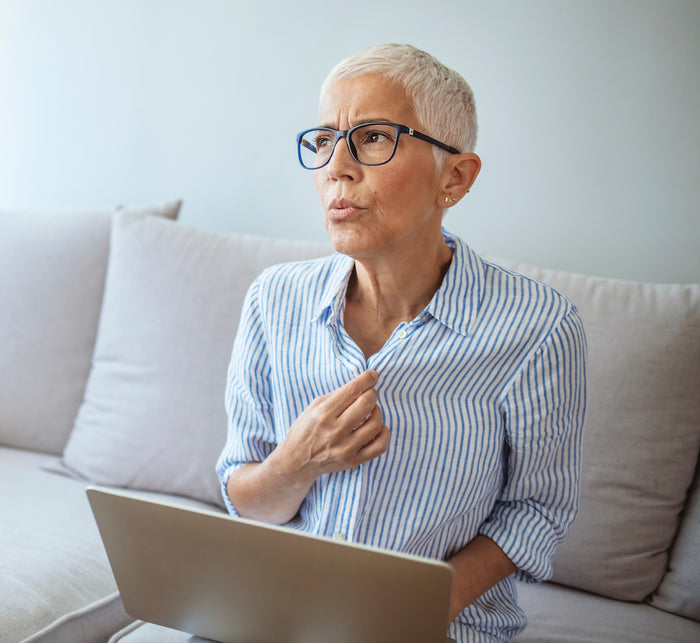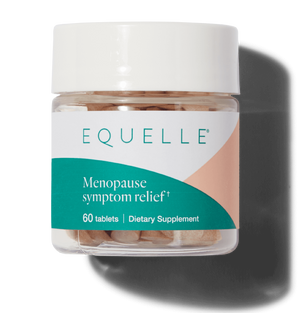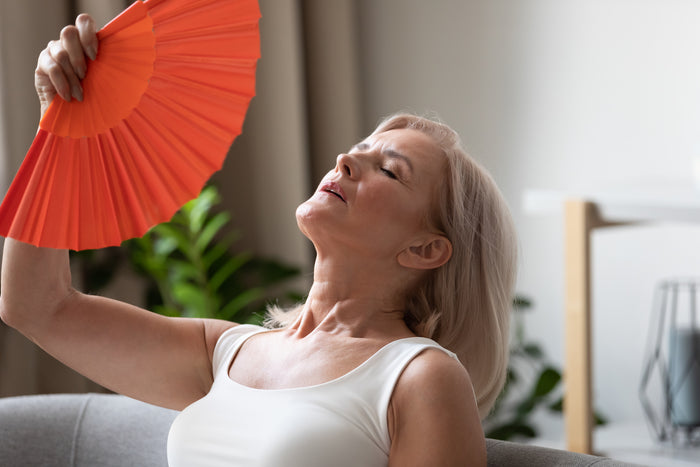You have no items in your cart
What Causes Hot Flashes?
A hot flash – typically characterized by profuse sweating, vasodilation, and intense feelings of internal heat – is triggered by small elevations to a person’s core body temperature.
A reduced thermoneutral zone (the region of body temperature between sweating and shivering) also plays a role; with less wiggle room between the two extremes of physical comfort, it takes only a slight change to body temperature to feel hot and balmy.
Estrogen depletion, a common part of menopause, is often the cause of hot flashes, though they aren’t exclusive to pre- and post-menopausal women.
A reduced thermoneutral zone (the region of body temperature between sweating and shivering) also plays a role; with less wiggle room between the two extremes of physical comfort, it takes only a slight change to body temperature to feel hot and balmy.
Estrogen depletion, a common part of menopause, is often the cause of hot flashes, though they aren’t exclusive to pre- and post-menopausal women.

Discover Equelle
An estrogen decline symptom relief supplement with S-equol, a plant-based ingredient derived from soy that safely mimics estrogen - relieving hot flashes and more.1-5 †

Signs You're Having a Hot Flash
If you’re experiencing a hot flash, you might notice symptoms like…
● A brief, intense sensation of heat throughout your body
● Feeling flushed
● Profuse, sudden sweating
● Red or pink skin
● Increased heart rate
● Feeling chilled after the wave of heat
● Fatigue or irritability
When these symptoms occur at night, they’re often referred to as “night sweats.”
● A brief, intense sensation of heat throughout your body
● Feeling flushed
● Profuse, sudden sweating
● Red or pink skin
● Increased heart rate
● Feeling chilled after the wave of heat
● Fatigue or irritability
When these symptoms occur at night, they’re often referred to as “night sweats.”

How Long Do Hot Flashes Last?
Hot flashes are quick bursts of heat that typically last anywhere from a minute to five minutes. They may be mild or they may be intense enough to disrupt day-to-day activities, including sleep.
Common Hot Flash FAQs
Why are hot flashes worse at night?
Hot flashes can seem to be worse at night because hormone levels tend to fluctuate more during this time of day, leading to changes in body temperature that cause negative symptoms. You may also be more prone to engaging in other triggers during the evening and nighttime – things like alcohol, hot baths, and spicy foods can jumpstart a change to your core temperature that sets off a hot flash.
Why do hot flashes happen in menopause?
The shift in estrogen levels that accompanies menopause (and leads to its telltale symptoms, like changes in menstrual cycles, headaches, etc.) alters the way that our bodies regulate core temperature.
In other words, hot flashes occur because the hormonal changes that menopause causes impact how our body keeps itself hot and cold, which makes it far more likely that sudden, unpredictable changes may occur.
Estrogen and other hormones (progesterone, for instance) play a key role in helping the body maintain homeostasis, so it comes as no surprise that a lack of it leads to physical changes.
Do supplements for menopause hot flashes actually work?
It depends on the supplement and the key ingredient. There are a lot of supplements that lack clinical trial data that proves it’s effective at alleviating menopause symptoms. Others like Equelle, have numerous studies to support its use and efficacy.
Equelle’s key ingredient, S-equol, is a soy isoflavone that works to relieve menopause hot flashes and other symptoms by mimicking estrogen.†
S-equol gets the job done by binding to the body’s estrogen receptors; its similar molecular structure allows it to make up the difference in estrogen in your body.†
Backed by 20 years of research, S-Equol is a great option for managing hot flashes and other menopausal symptoms with ease and without fear, no matter which stage of menopause you’re in. Equelle is a supplement that provides relief from uncomfortable symptoms while still treating your body with gentle loving care.3,6-7